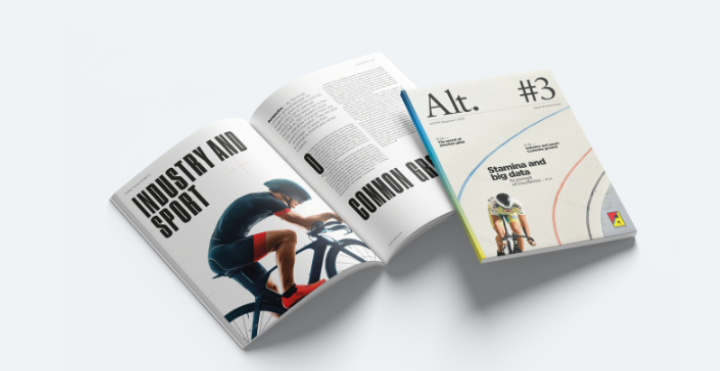

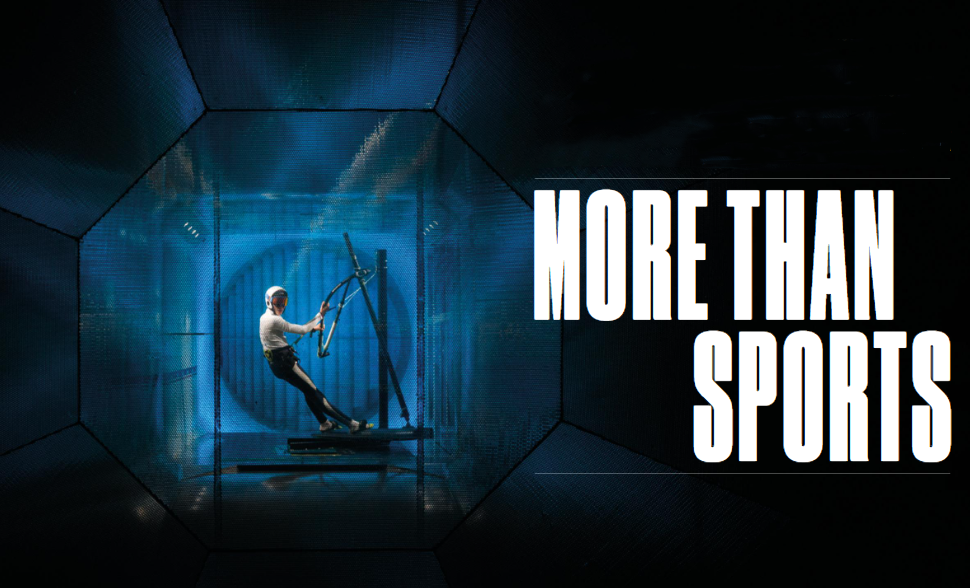
The 2024 Paris Olympics, the 33rd Summer Olympic Games, will be held in France from July 26 to August 11. ALTEN Labs is focused on enhancing cyclists" performance in preparation for this prestigious event. For athletes in many sports, including cycling, time is of the essence — a few seconds can mean the difference between winning a medal and just being a participant. While much depends on the athlete’s training, stamina, determination, and physique, additional factors can give cyclists the edge they need to excel.
ALTEN has assembled a team of sports scientists dedicated to enhancing athlete performance across various fields. At ALTEN Labs, these scientists are conducting research in collaboration with sports federations, engineering schools, and individual athletes. Their innovations span a wide range of areas, including data science, learning algorithms, aerodynamics, mechanical and biomechanical engineering, modeling, 3D printing, operational research, web development, and data visualization.
ALTEN in The Field of Sports
The synergy between ALTEN and sports is evident and purposeful. Achieving peak performance in sports demands meticulous attention to detail and a comprehensive understanding of both the athlete and their environment. In high-performance sports, crucial support comes in the form of advanced equipment, training, and strategic insights that can make the ultimate difference. ALTEN"s engineering expertise plays a crucial role in this optimization, leveraging fluid mechanics, computer vision, artificial intelligence, biomechanics, 3D design, algorithms, and web development, ensuring the results are accessible and usable.
ALTEN"s commitment to sports science has spanned for several years. We undertake various projects, some in partnership with other organizations and others funded independently. These projects vary in their stages of maturity—some already have direct applications in the field with promising initial results, while others are still in development.
Attention to detail and a broad perspective
Interview with Georges Soto-Romero
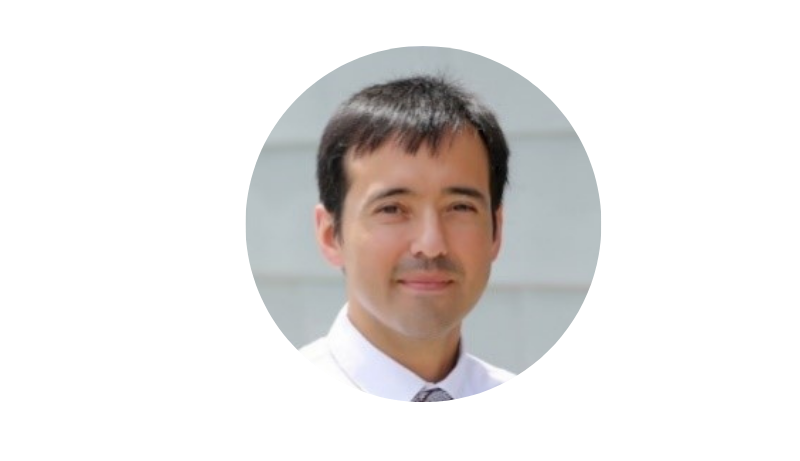
Georges Soto-Romero who specializes in system analysis and architecture, shares his experience working with an enthusiastic team to bring the concept of the digital twin to life. Despite the significant investment of time, technology, and effort, this approach is highly practical given the athletes" demanding training and competition schedules. "They"re out competing over 200 days a year, thanks to 3D scan technology, we can be quite precise in our reproduction." Once the digital twin is perfected, researchers can simulate the cyclist"s dynamics, such as pedaling characteristics, and study their effects in detail. The evolution of scanner quality over the years has enhanced these simulations, along with ALTEN"s expertise in modeling.
In total, 66 ALTEN consultants were involved in this project, including junior staff in training and experienced mechanical engineers from the automotive, rail, and defense sectors. Equipment can also be studied using this technology. "We have created a database of digital helmets," says Georges. "This allows us to take a scanned athlete and test different helmets to determine the best aerodynamic option."
Interview with Antony Costes
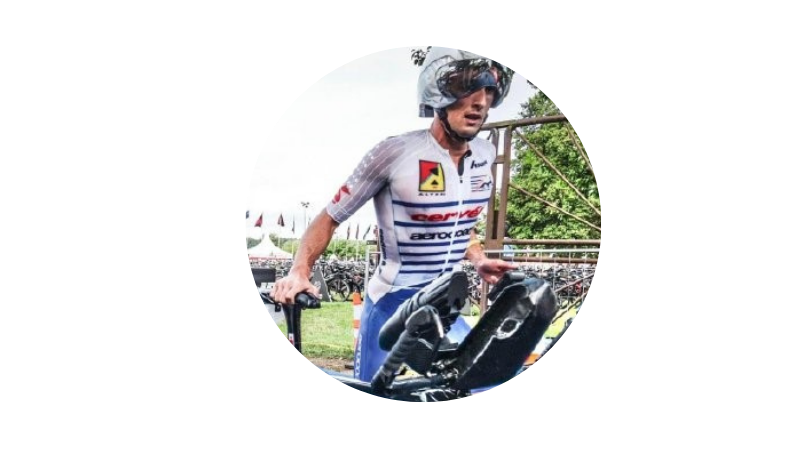
Antony Costes, currently the Research and Development Project Manager at ALTEN, is also a professional triathlete and the first ever French Sub8 on the Ironman distance. Importantly, Antony served as our beta tester. He was scanned from head to toe, including his bike and equipment. Antony expressed recognition of the improvement in details achieved by digital twin technology.
Antony emphasizes the importance of attention to detail in optimizing an athlete"s performance. "The position of the mannequin is adjusted between runs to pinpoint sensitivity," he explains. "This high-performance approach enables us to detect even minimal differences, which can be cumulative. We aim to achieve what we call marginal gains. The sum of these gains adds up significantly."
We also focus on the placement of seams on cycling jerseys. Proper stitching technology can significantly reduce air resistance. In competitions where outcomes are decided by thousandths of a second, these minute details captured by digital twin technology are crucial and can effectively enhance sports performance.
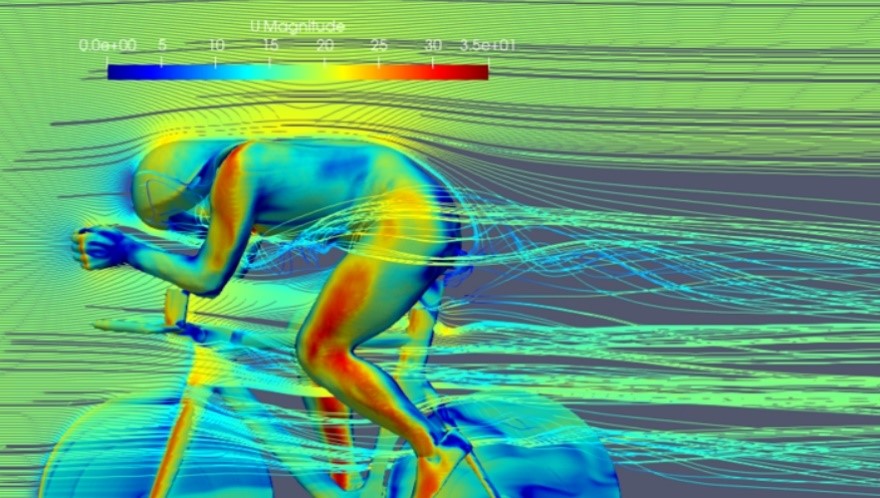
Applications in Other Fields
At ALTEN, we are enthusiastic about extending our sports-related innovations to benefit our clients in various high-performance industries. The expertise we develop in areas such as aerodynamics, energy management, and biomechanics can be readily applied to numerous fields. For instance, generative AI can enhance the performance of engineers across disciplines. Algorithms designed for sports can improve workstation ergonomics, boosting the well-being and productivity of factory operators. Optimizing a truck"s aerodynamics can reduce both fuel consumption and its carbon footprint. Moreover, digital twin technology can aid in developing real-time strategies to better coordinate the flow of people in cities, at sporting events like the upcoming Olympic and Paralympic Games, and in airports. Research on heart rates and fatigue prediction can lead to significant advancements in health. These examples illustrate the broad potential of our innovations beyond the realm of sports.
Building Tomorrow’s World with Sustainable Innovation
Innovation is an integral part of our DNA at ALTEN. We push the boundaries through science and sport, fostering sustainable innovation and passion. ALTEN and the Olympics share many core values, including the pursuit of excellence, teamwork, and perseverance. These values are evident both on the sports field and in the ALTEN. As a dedicated innovation partner, ALTEN will continue to invest in sports science research to help more athletes achieve outstanding performance.
You are invited to explore this exciting innovation journey together:
